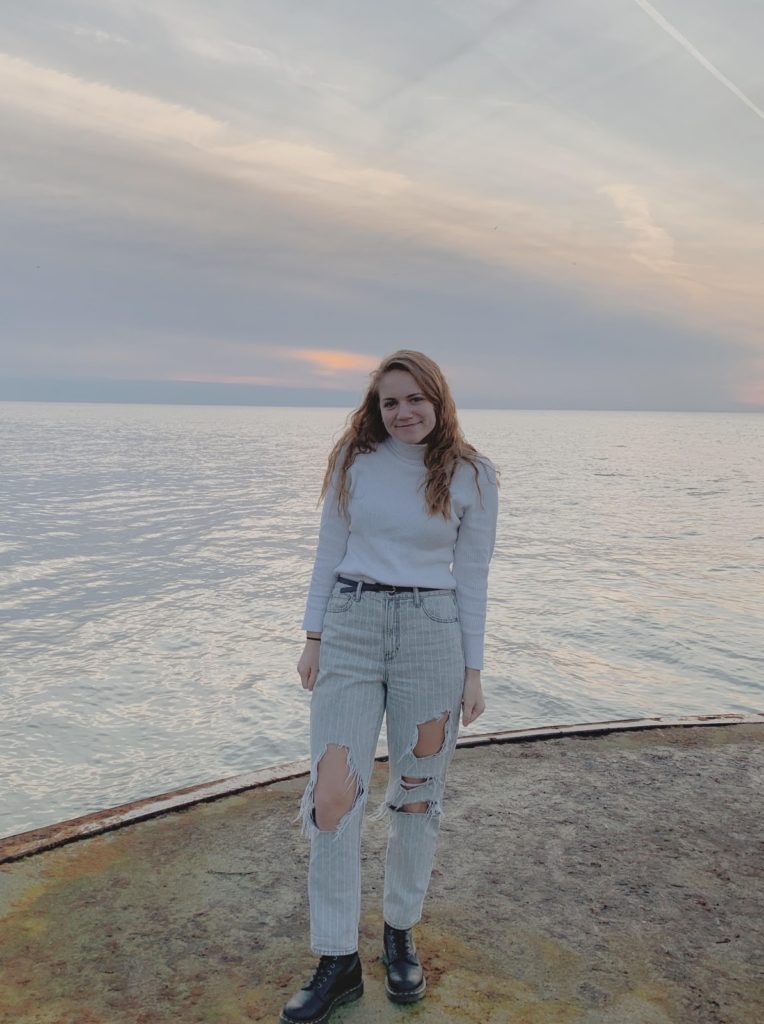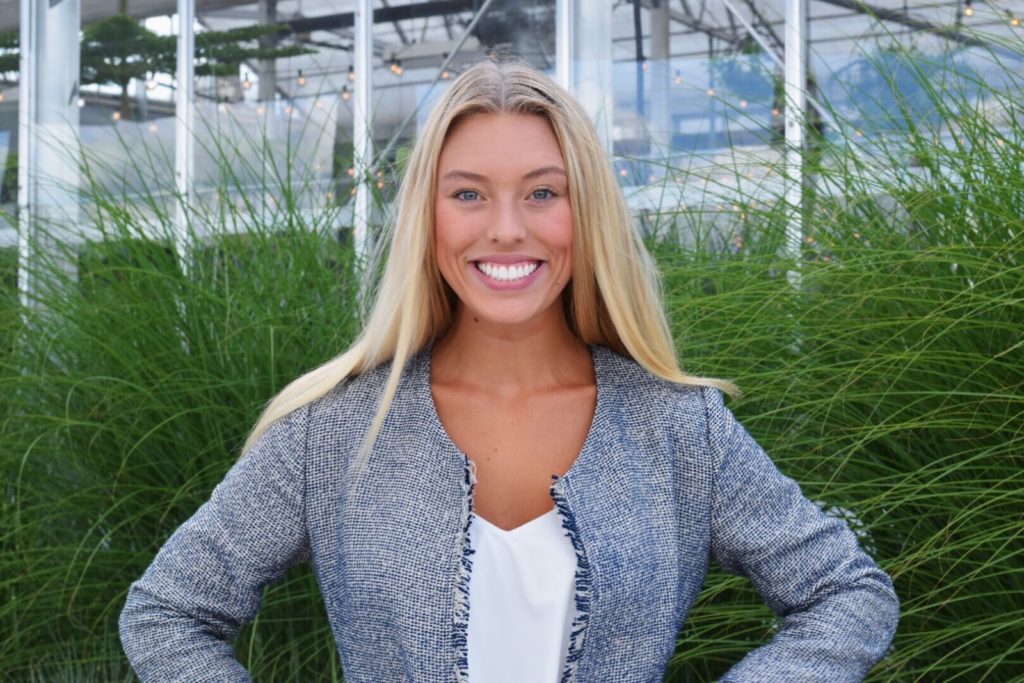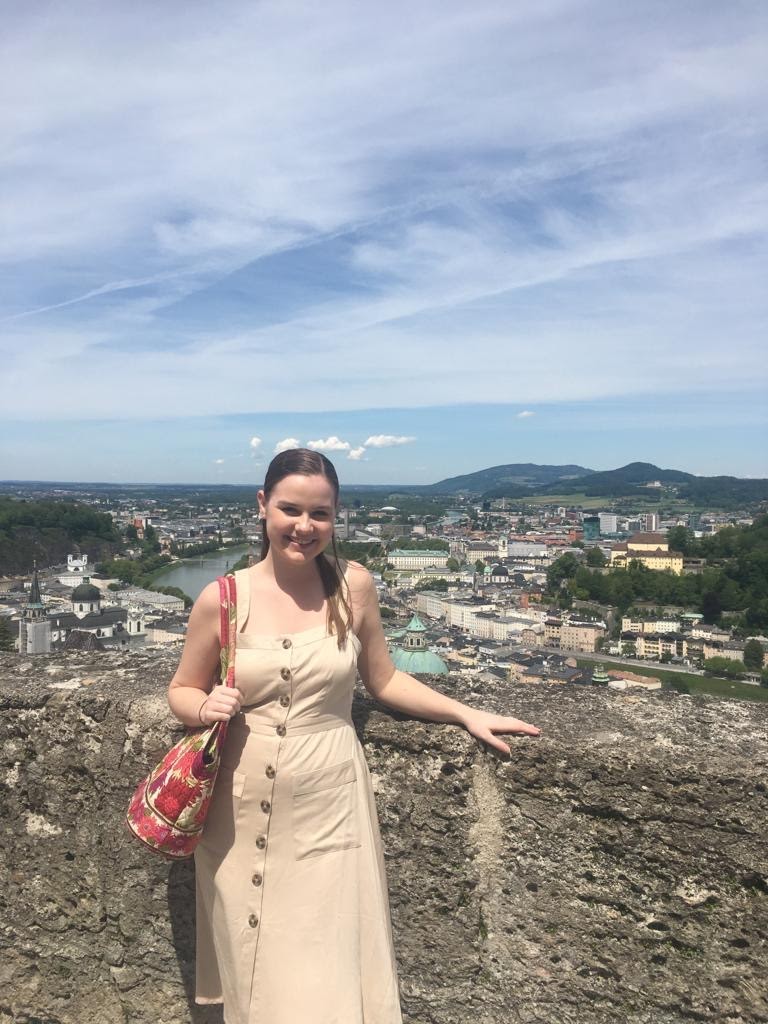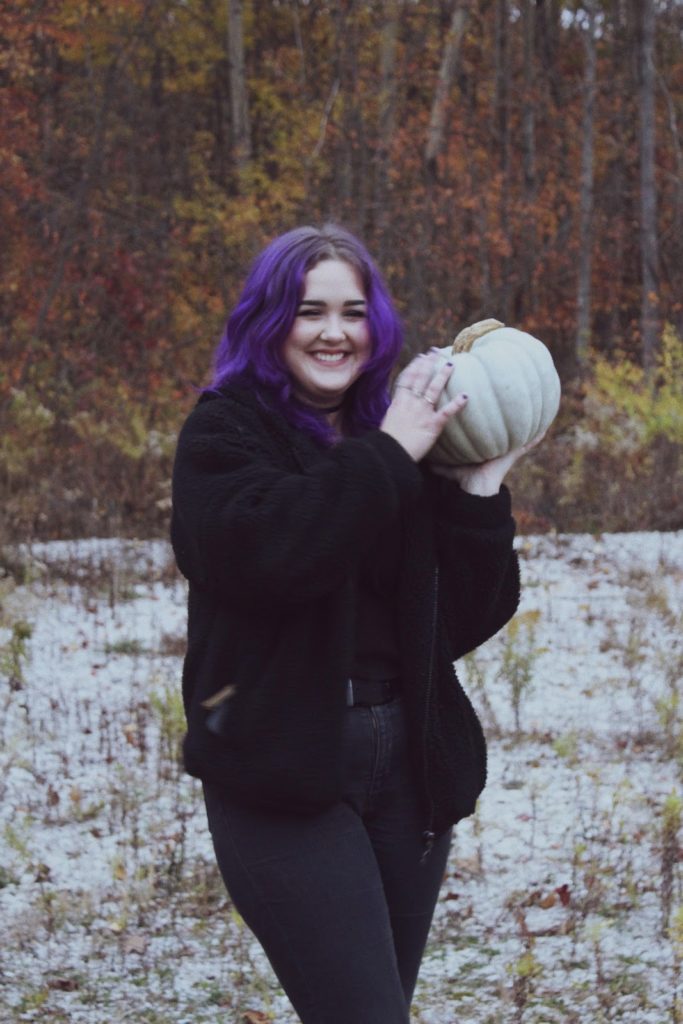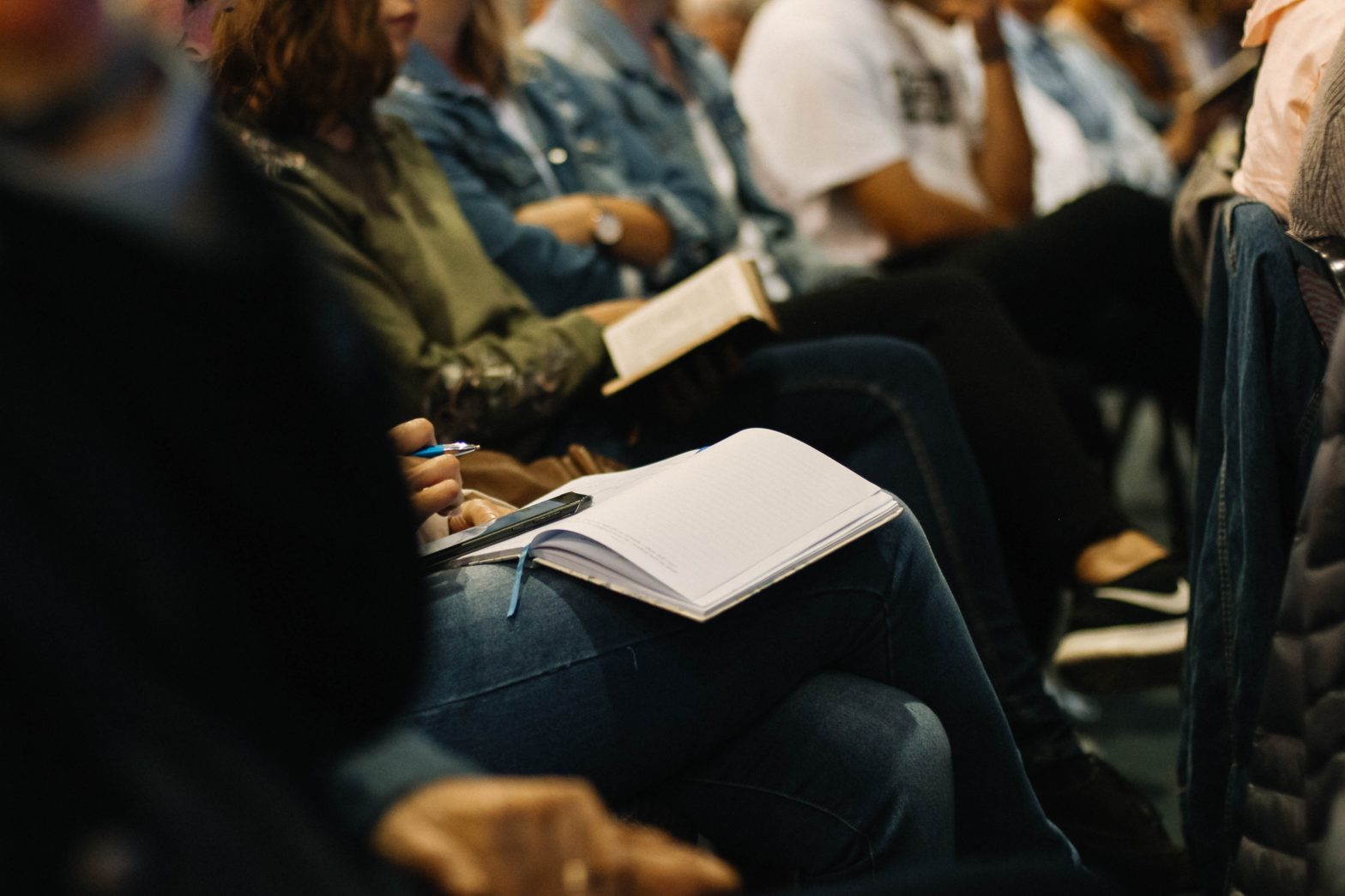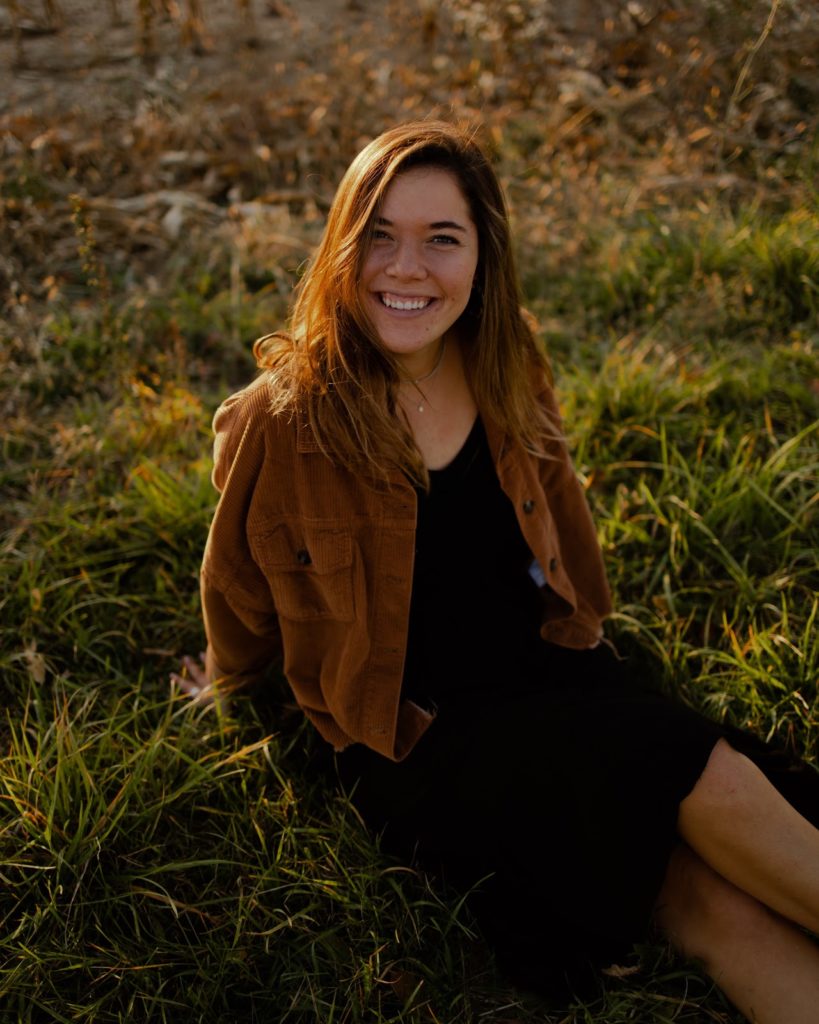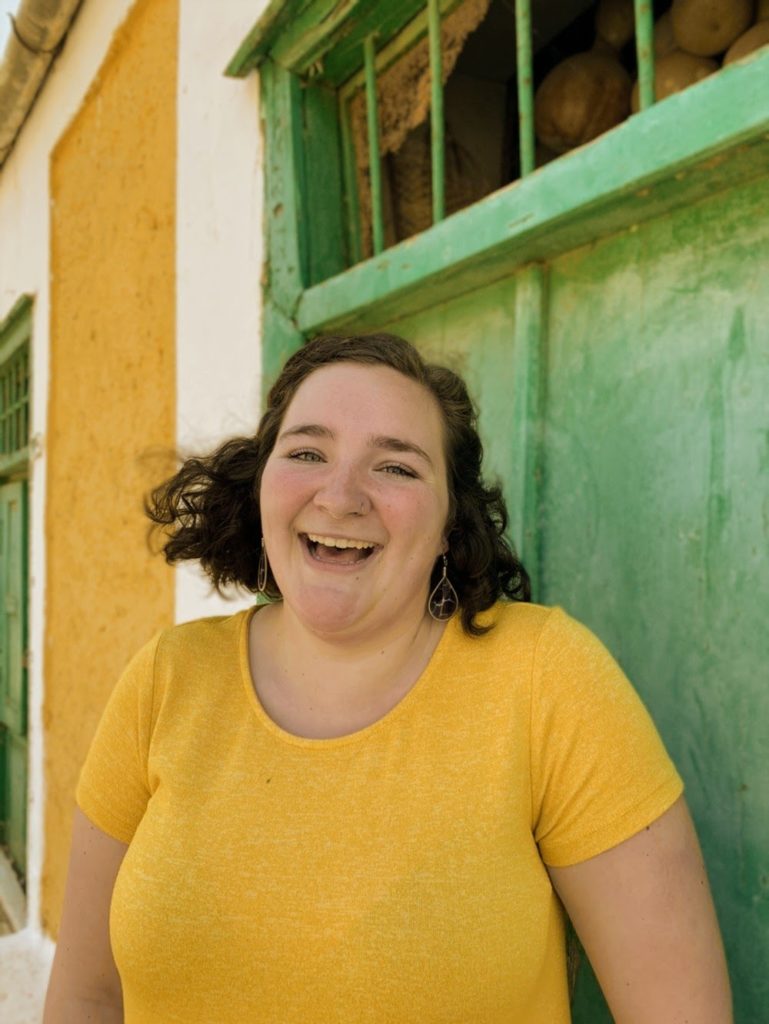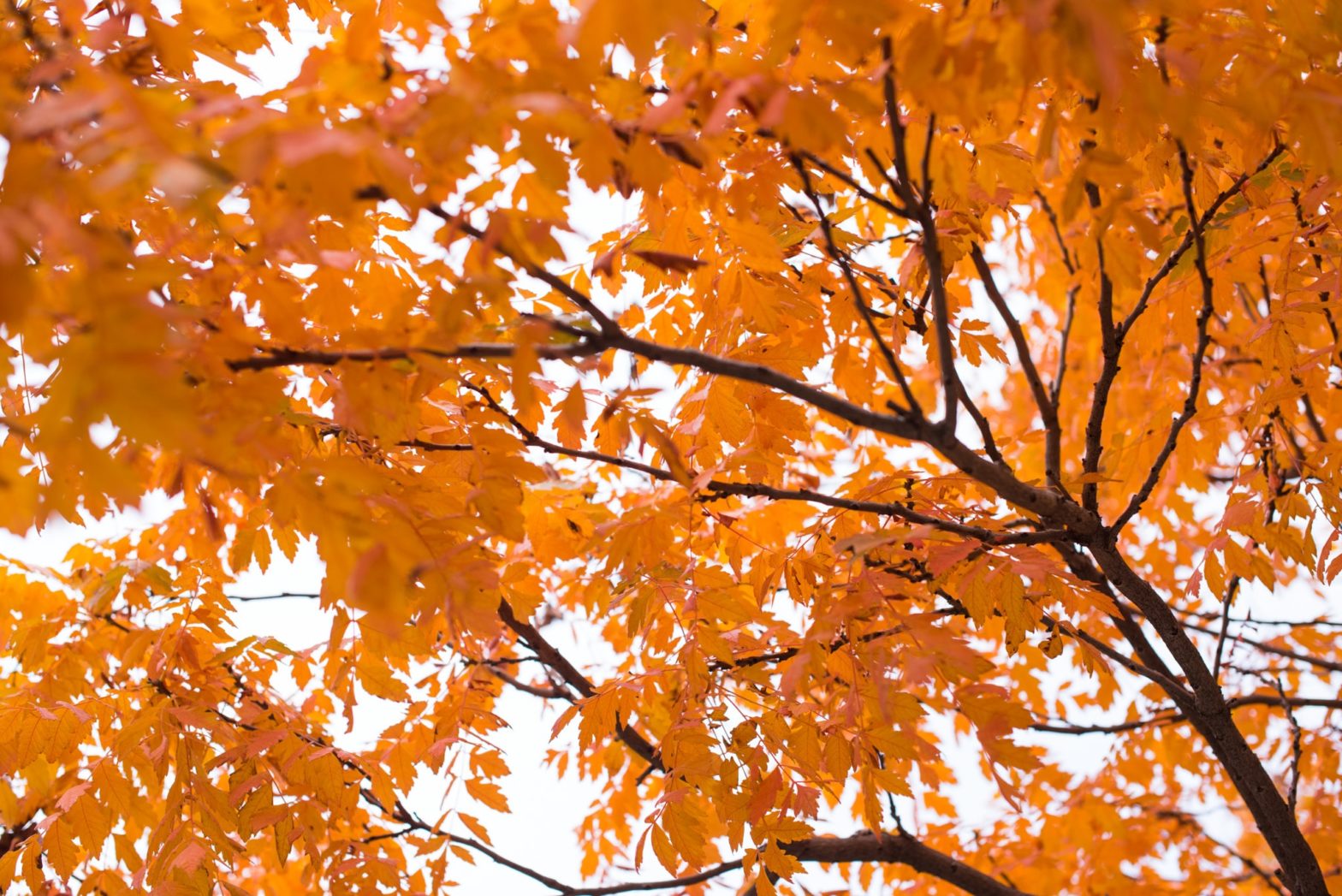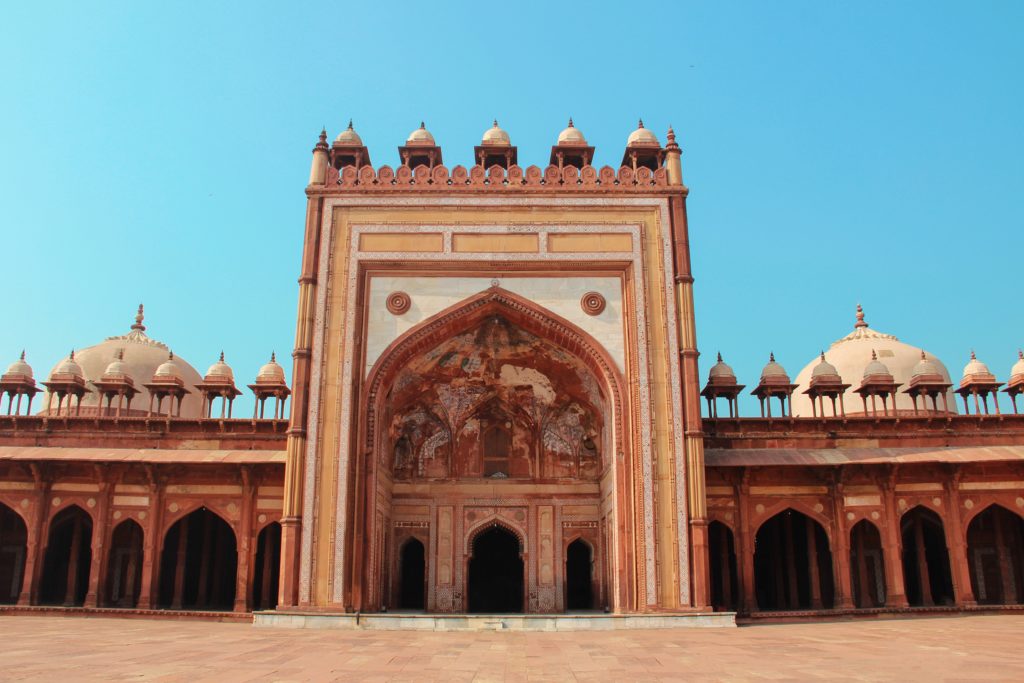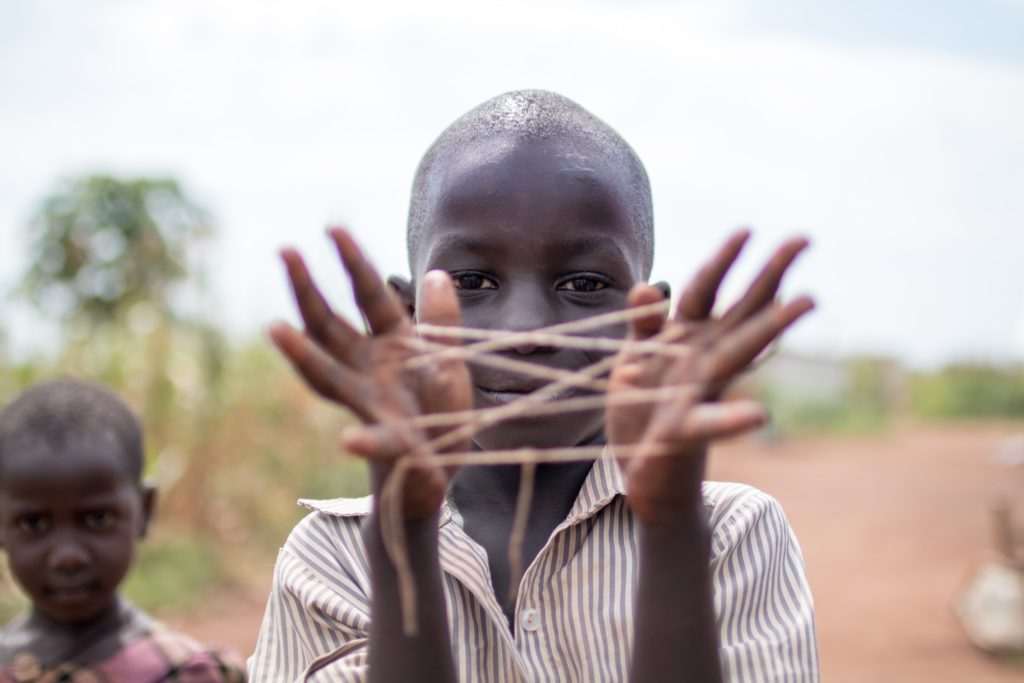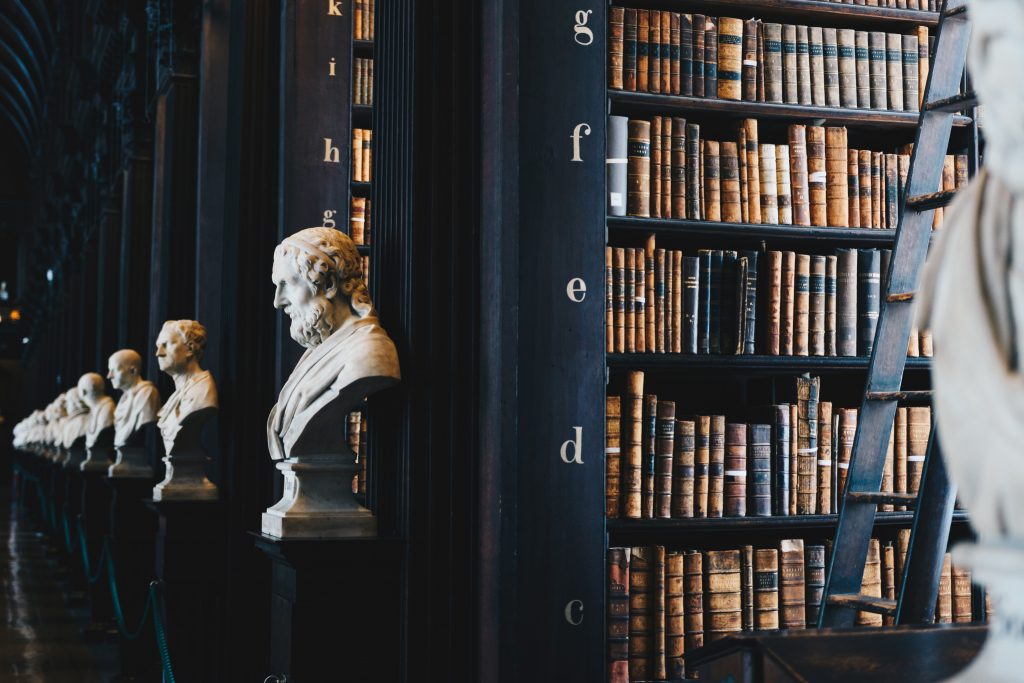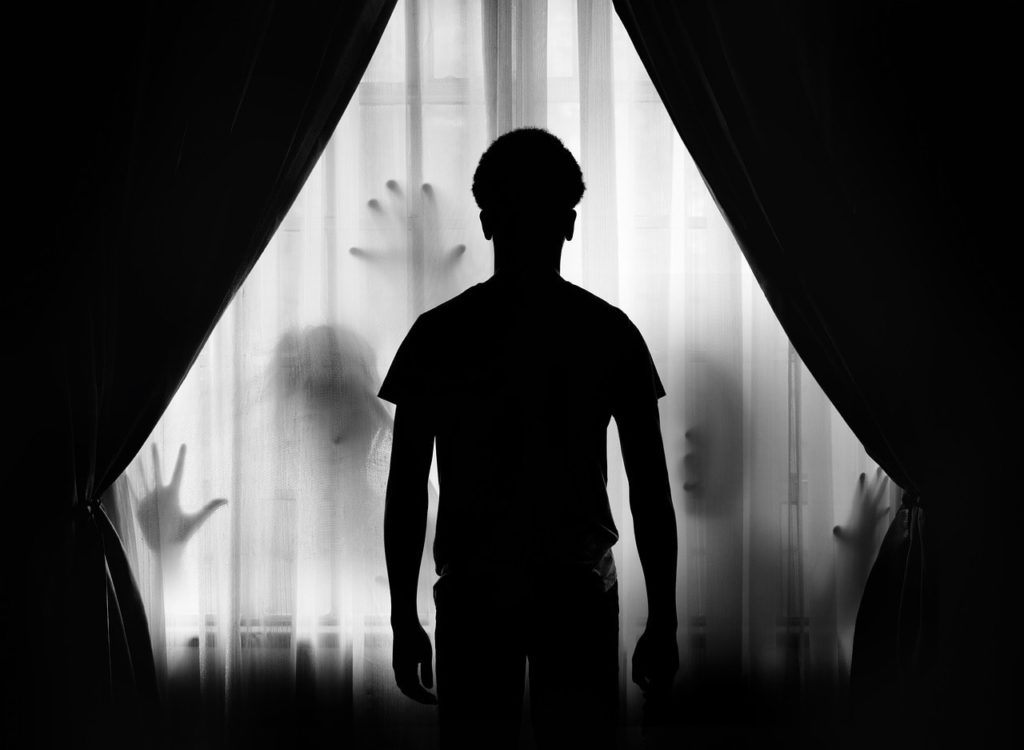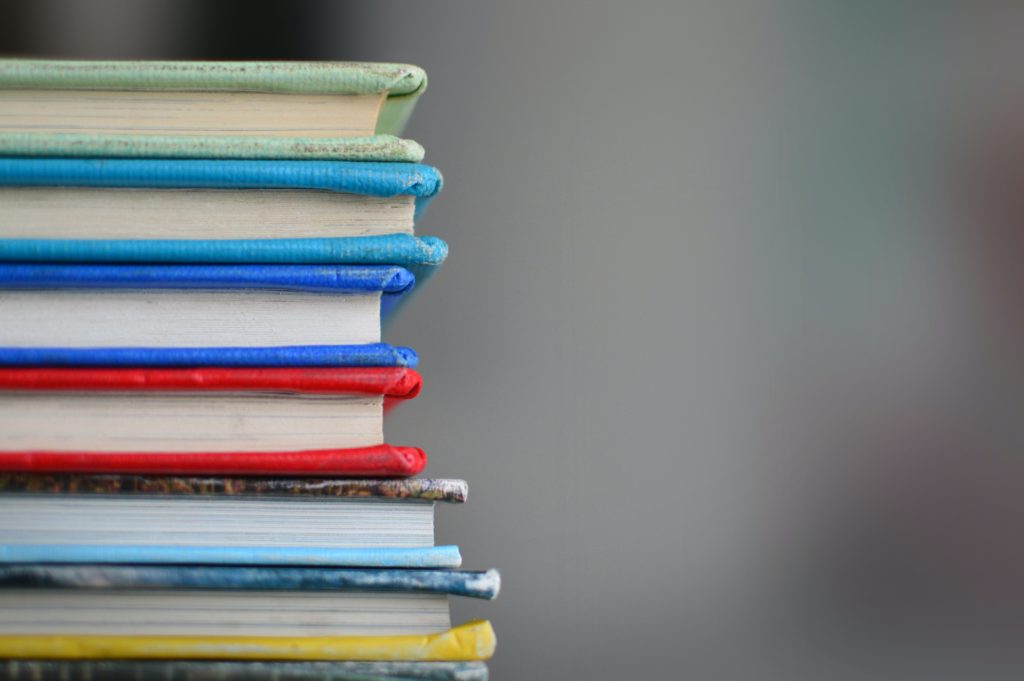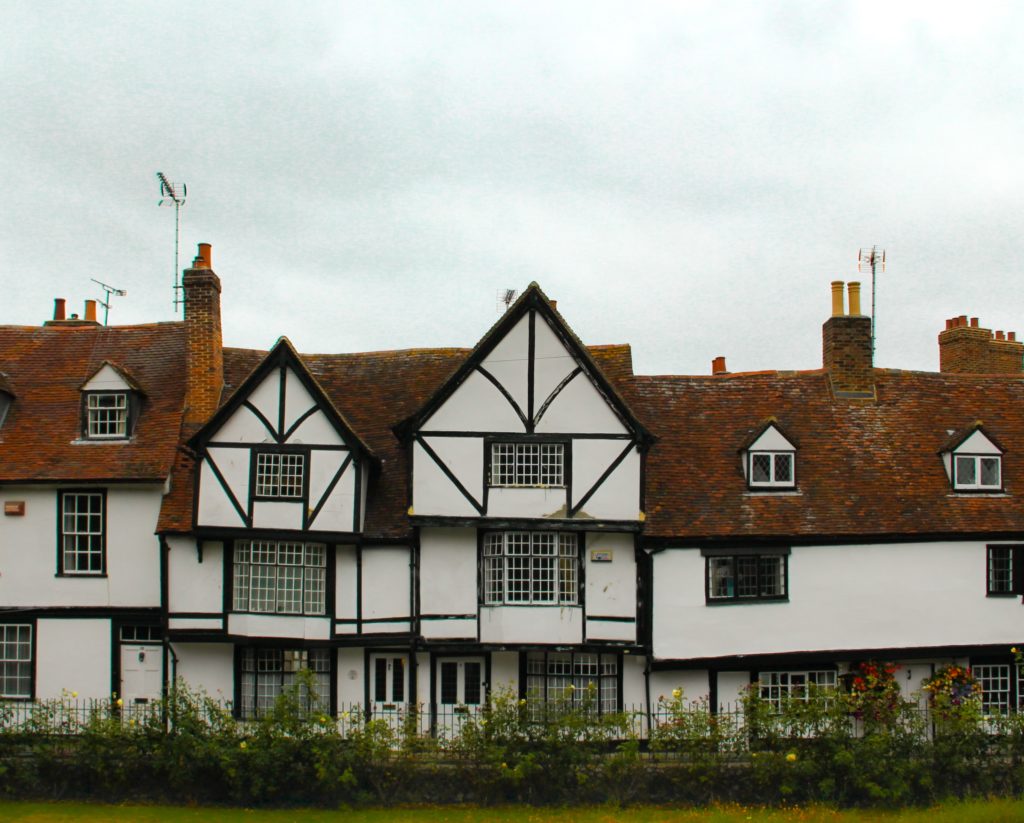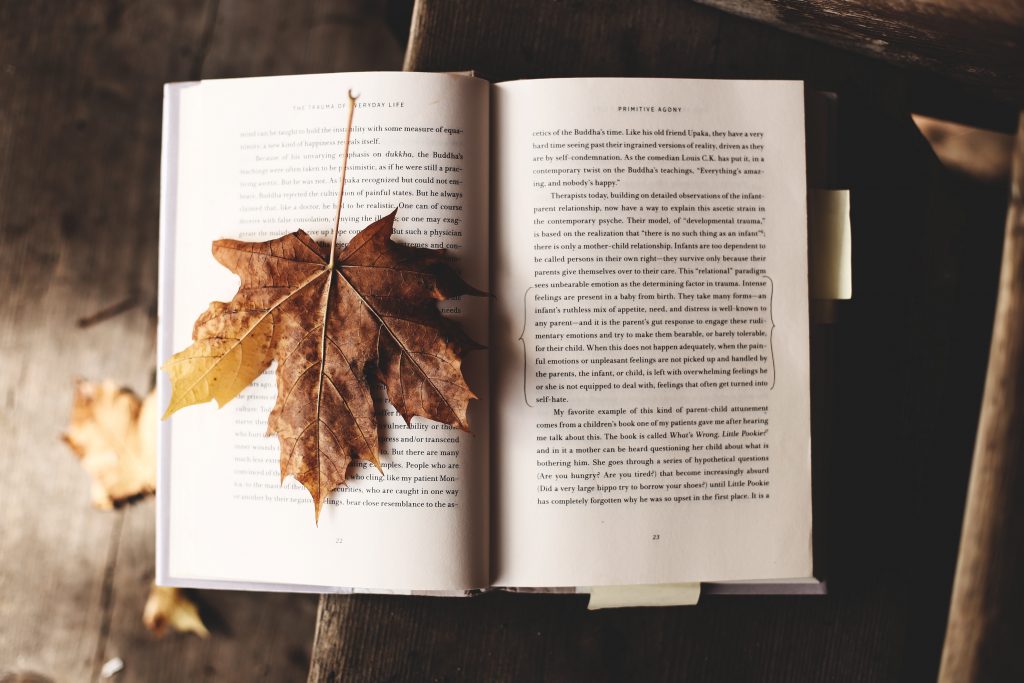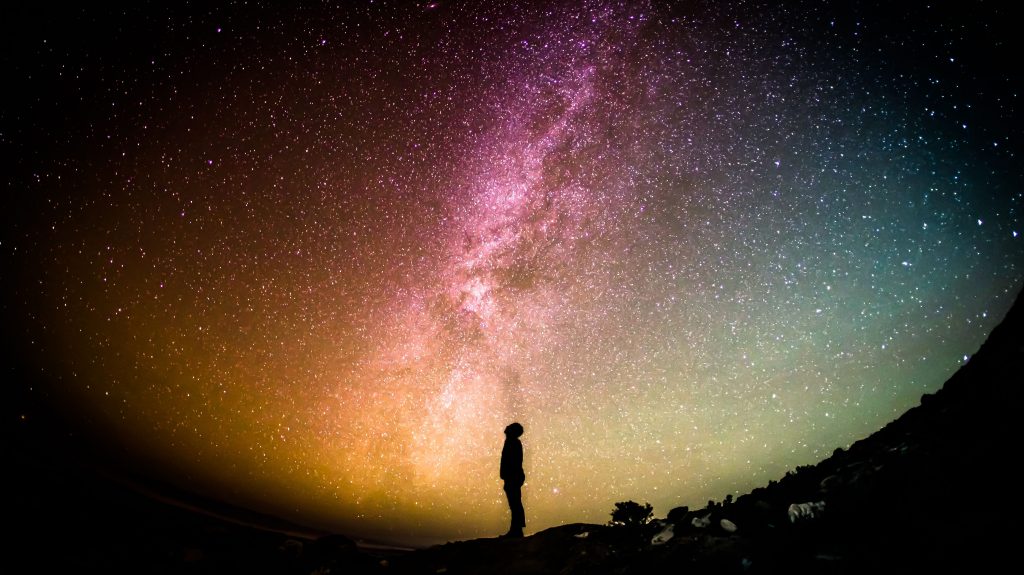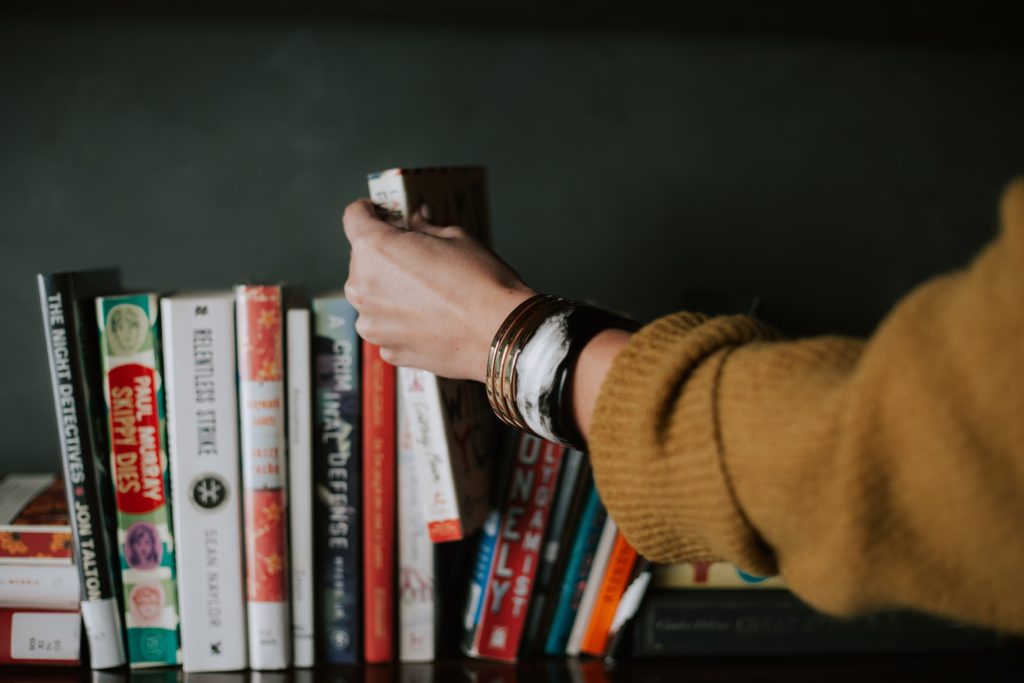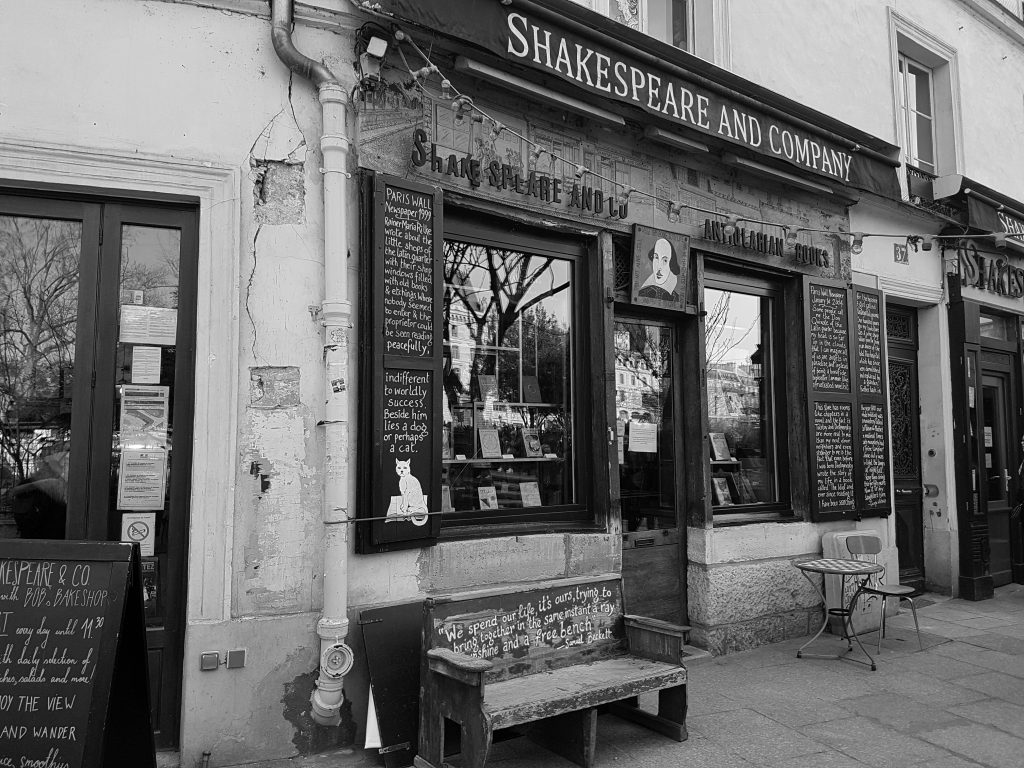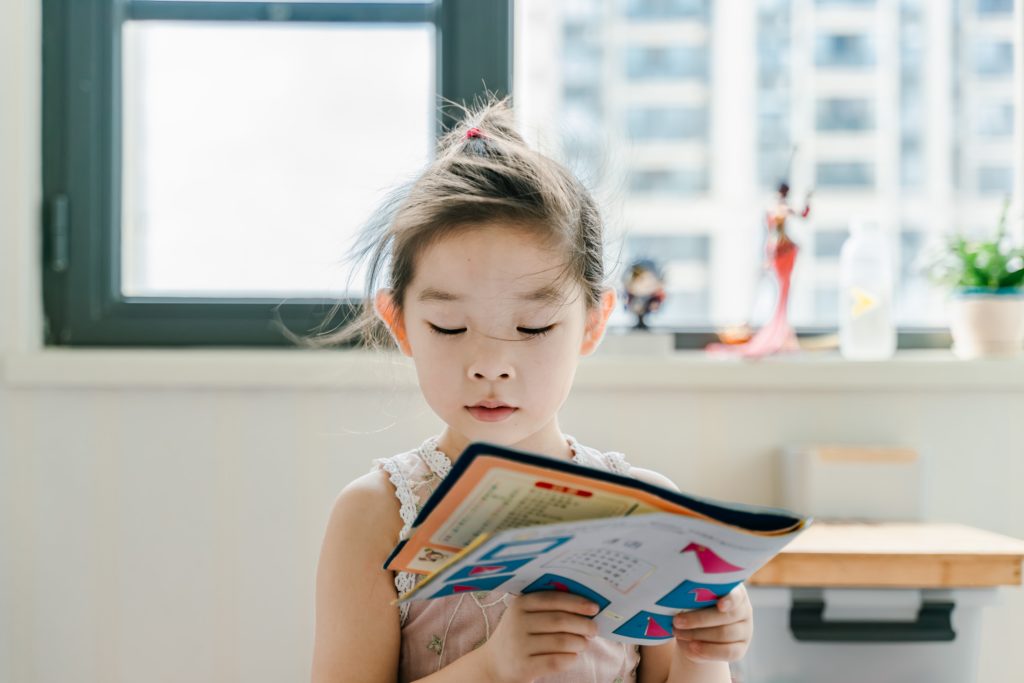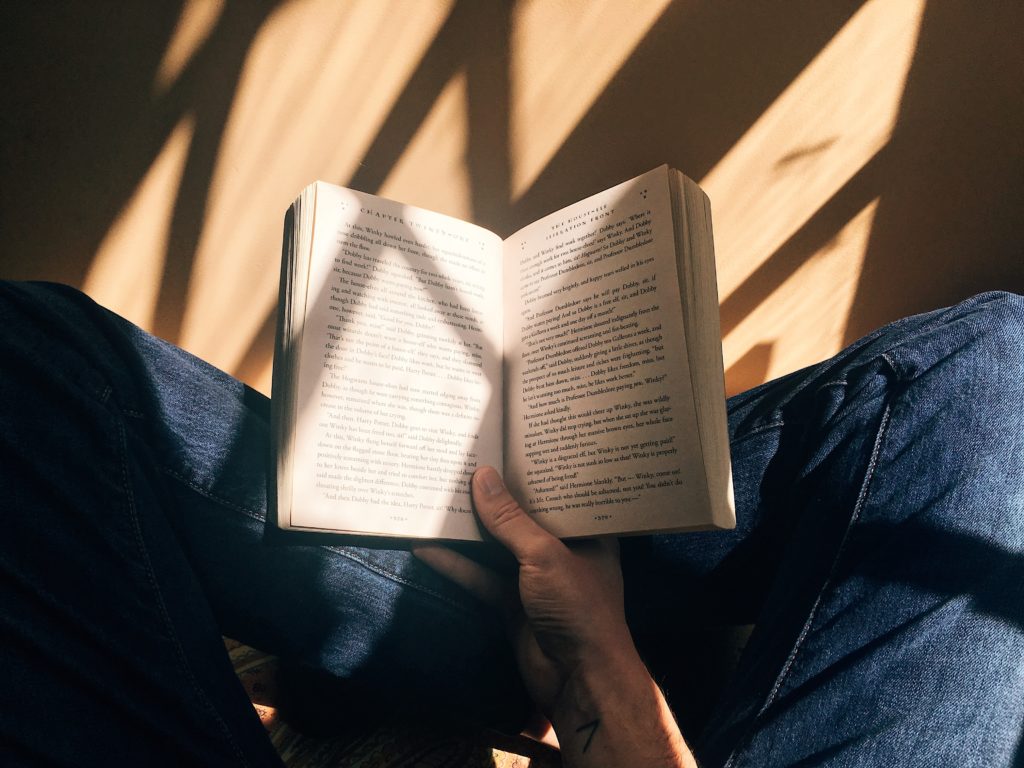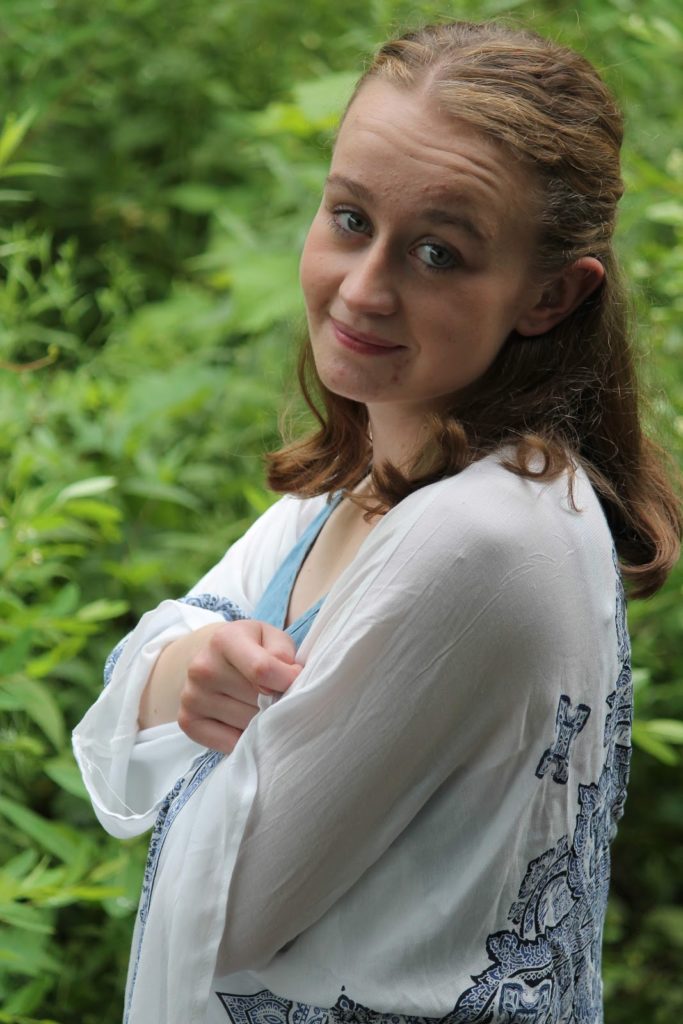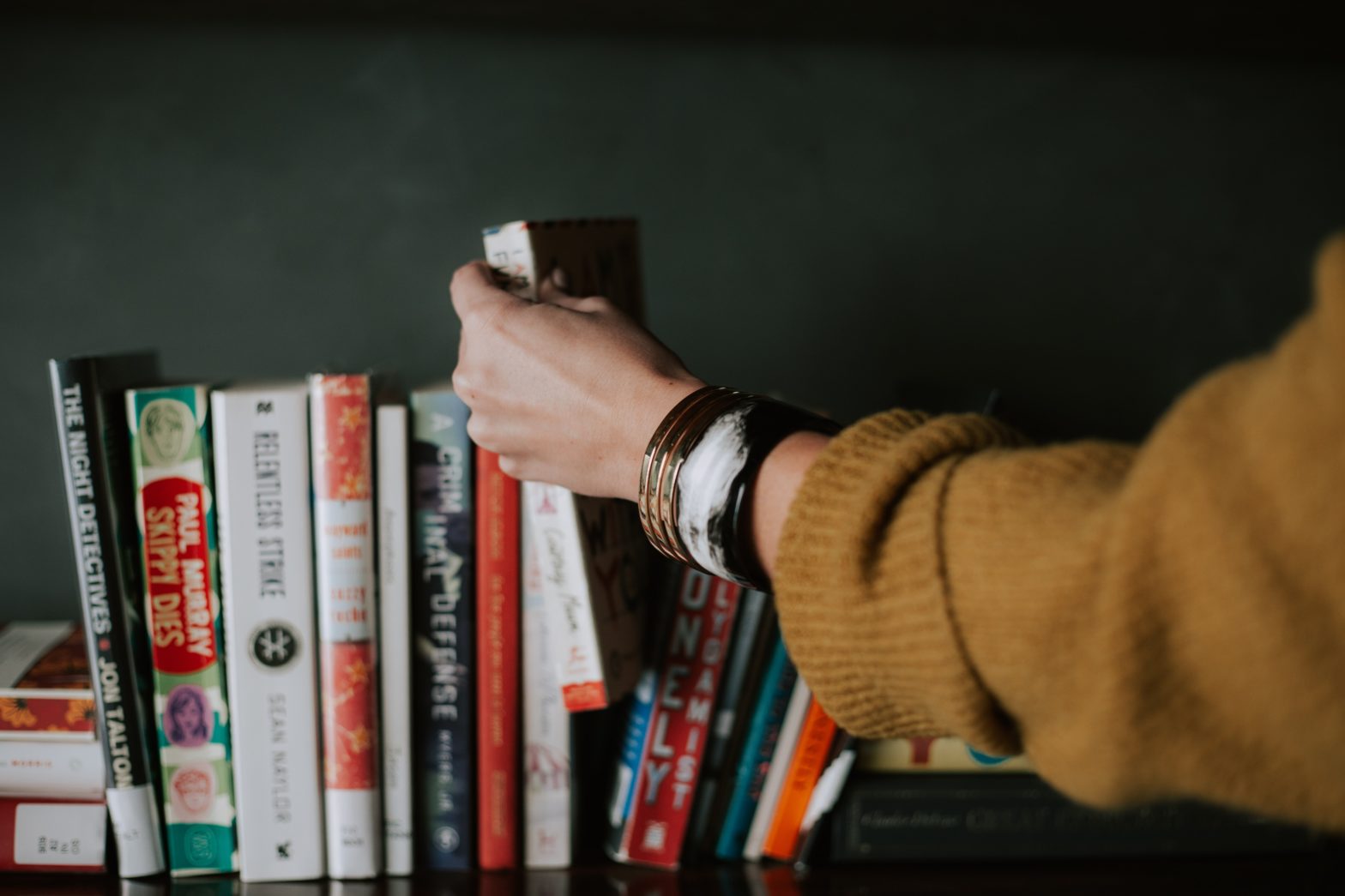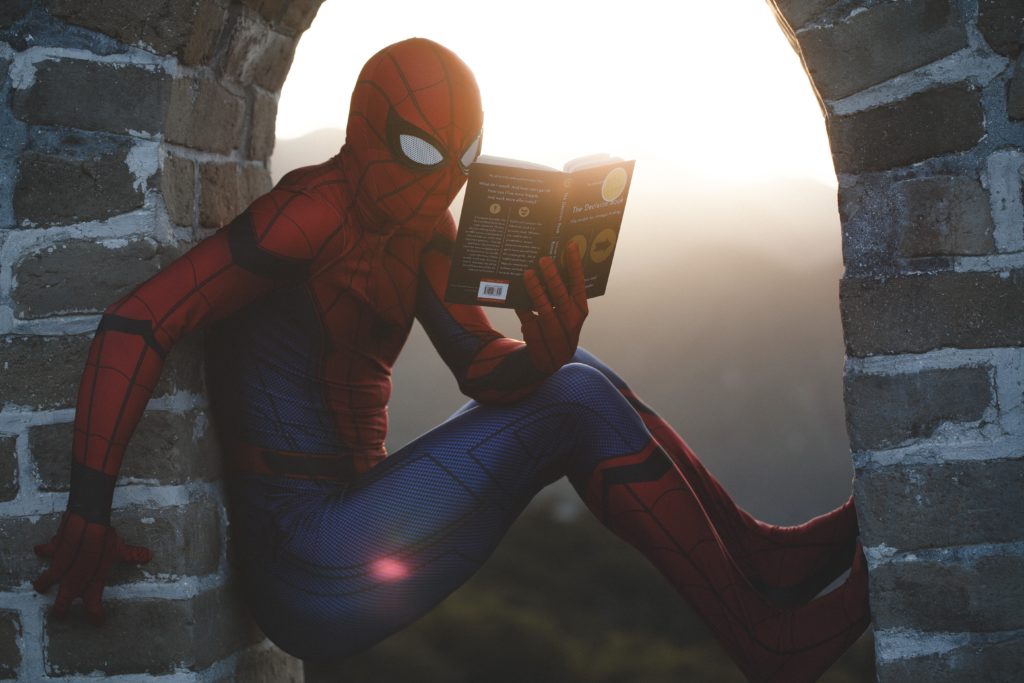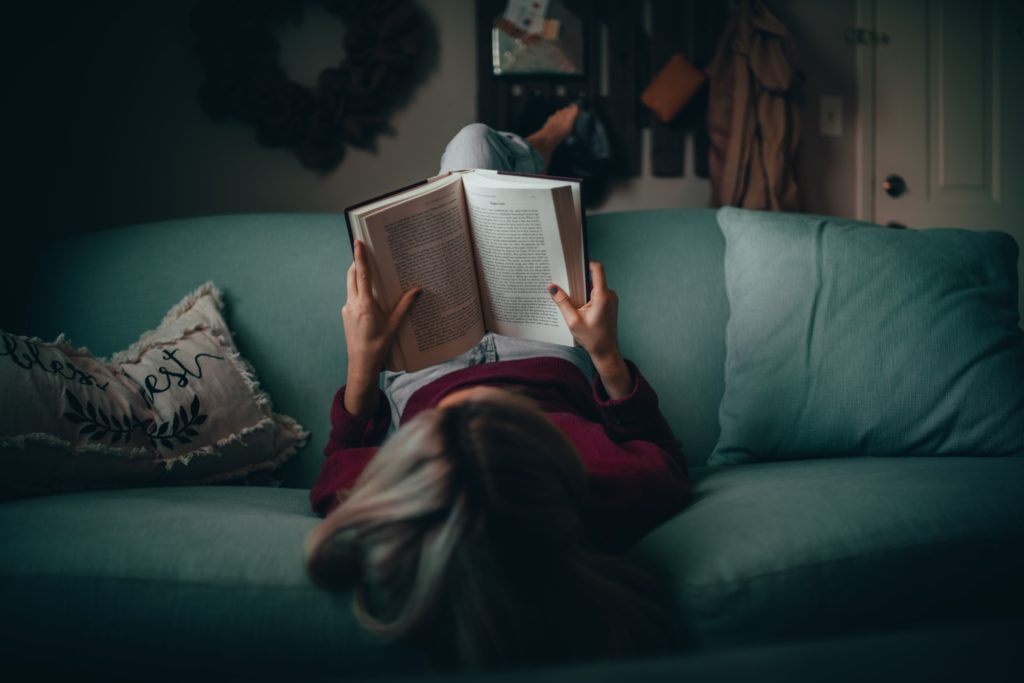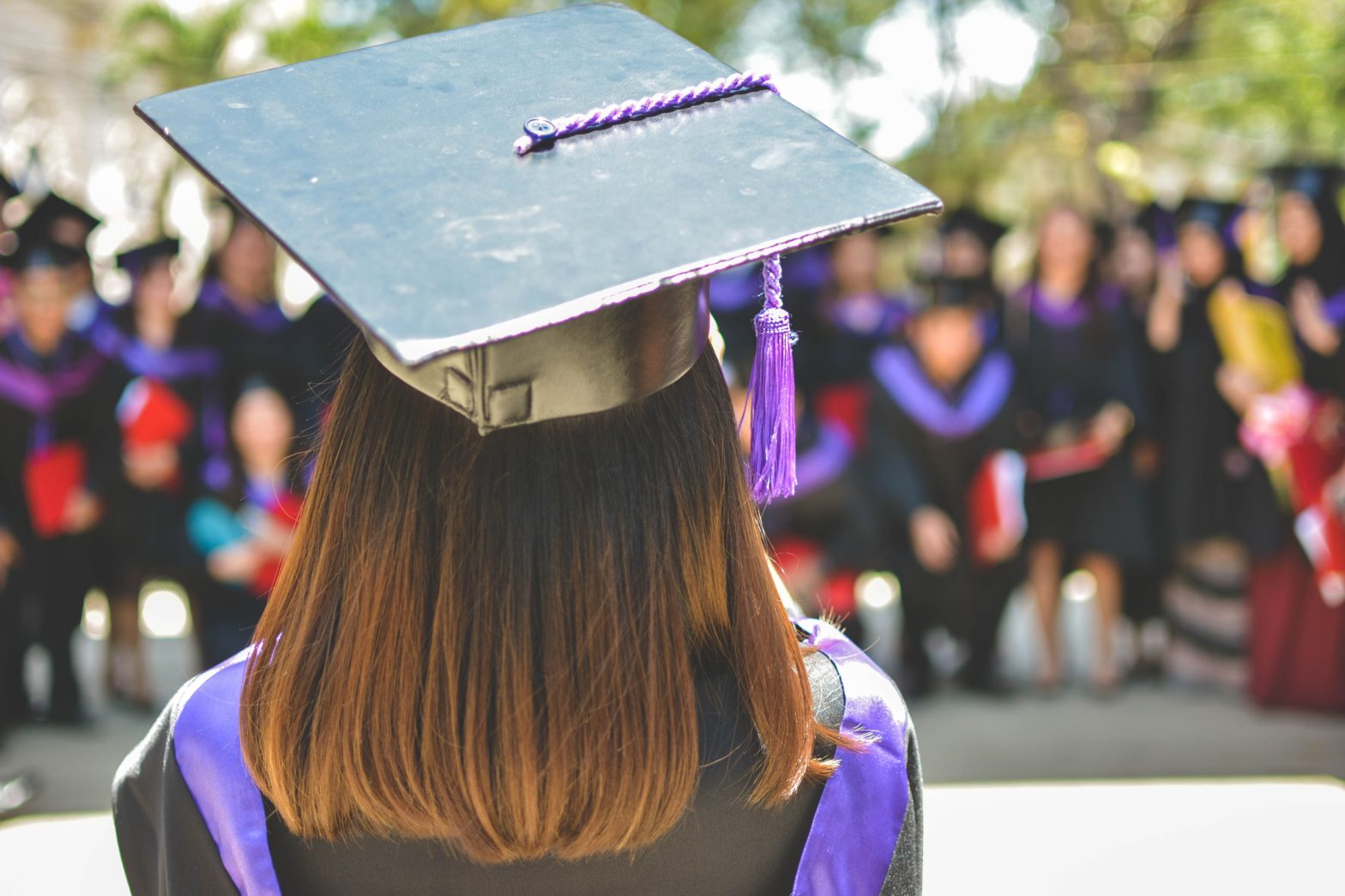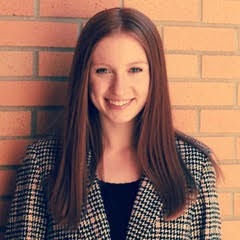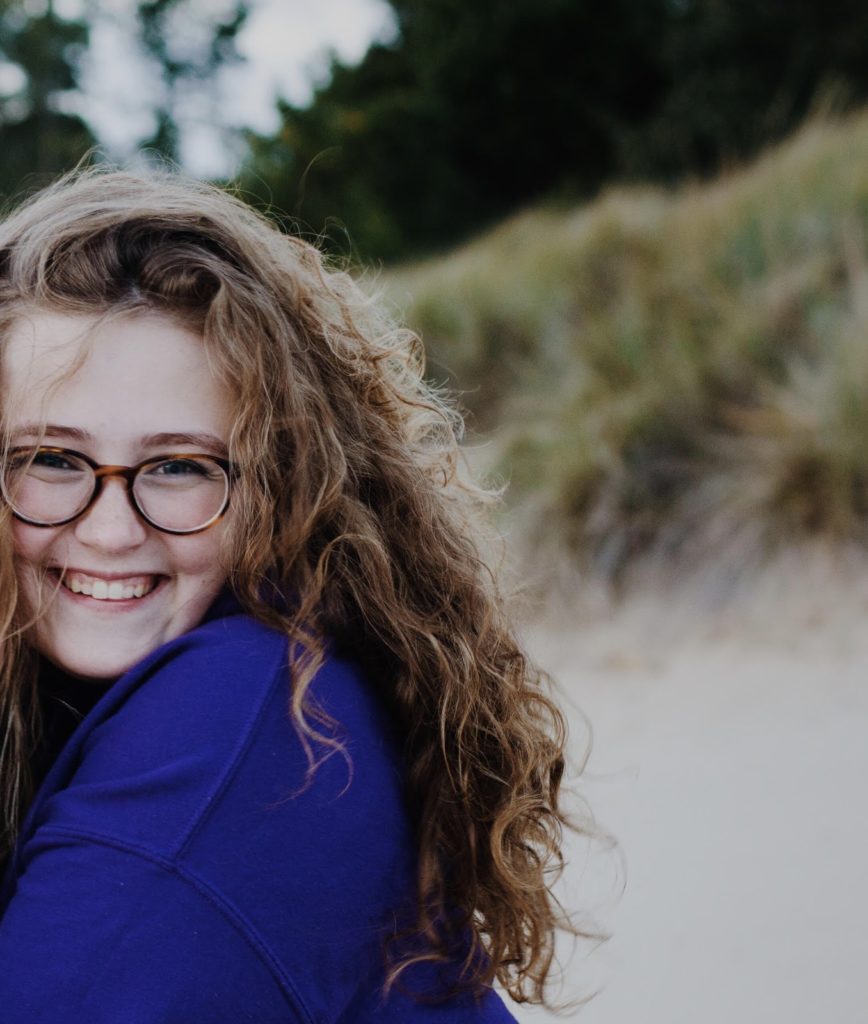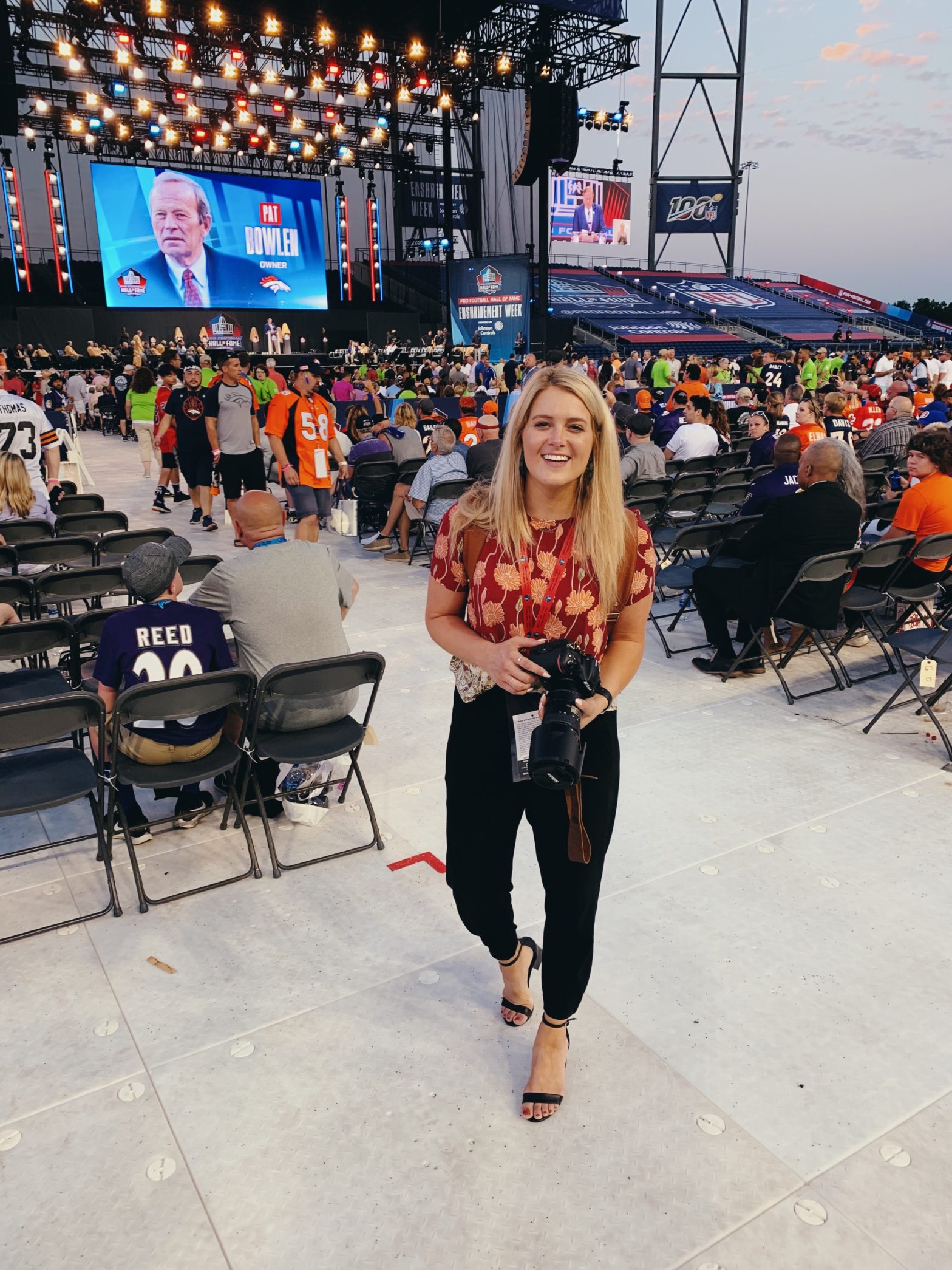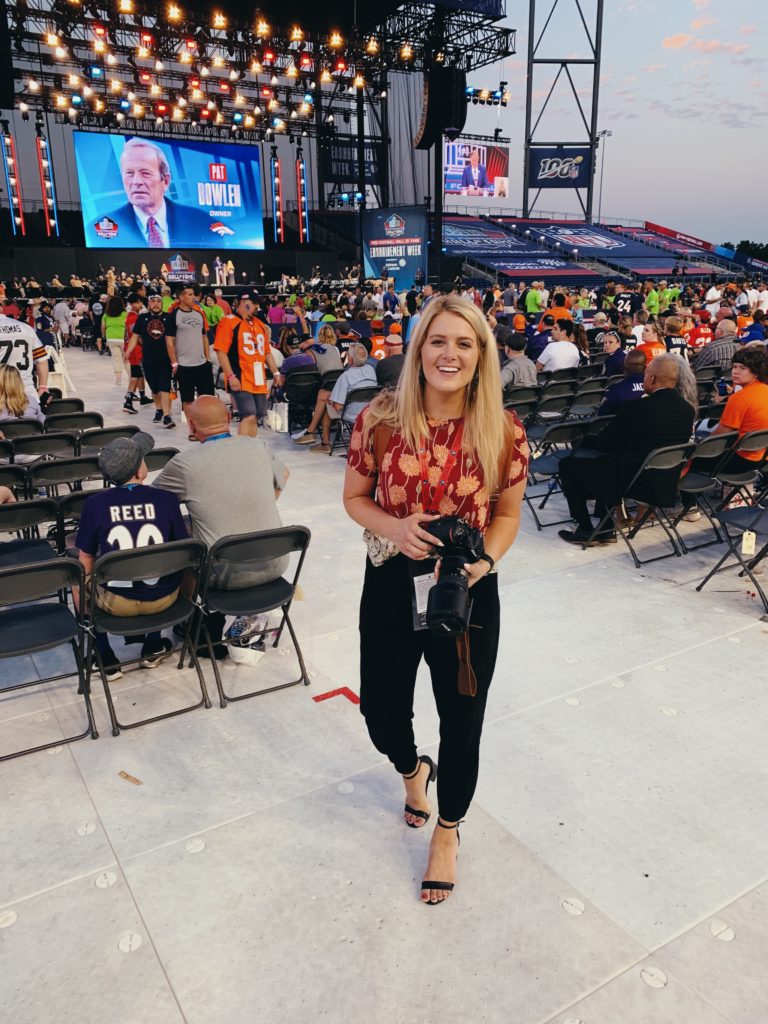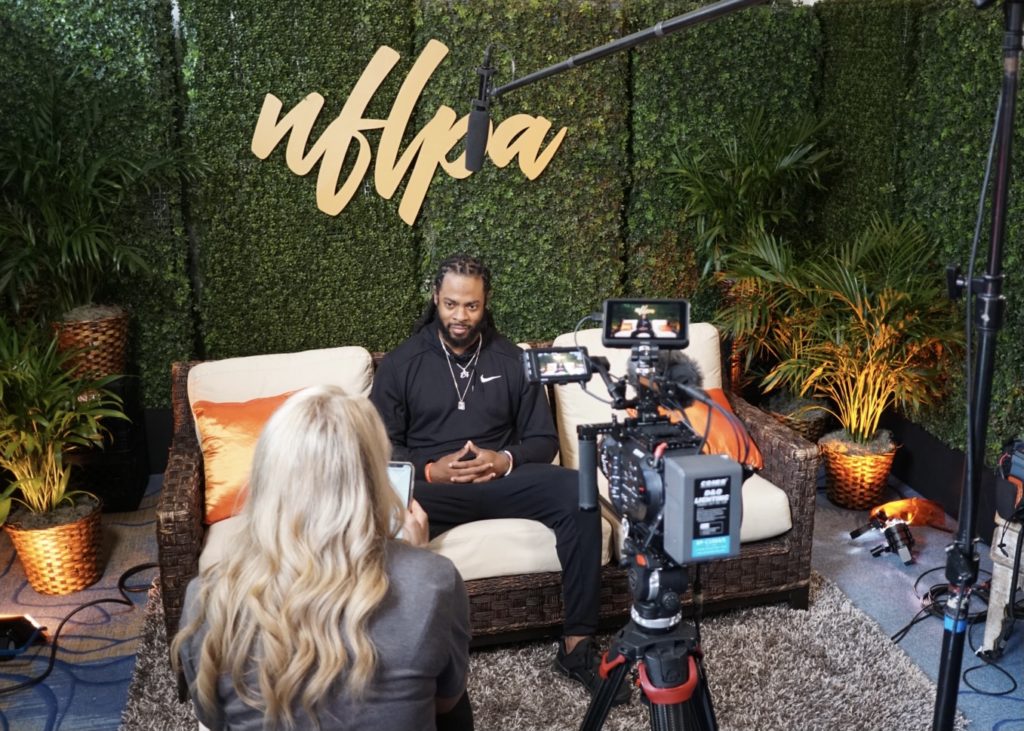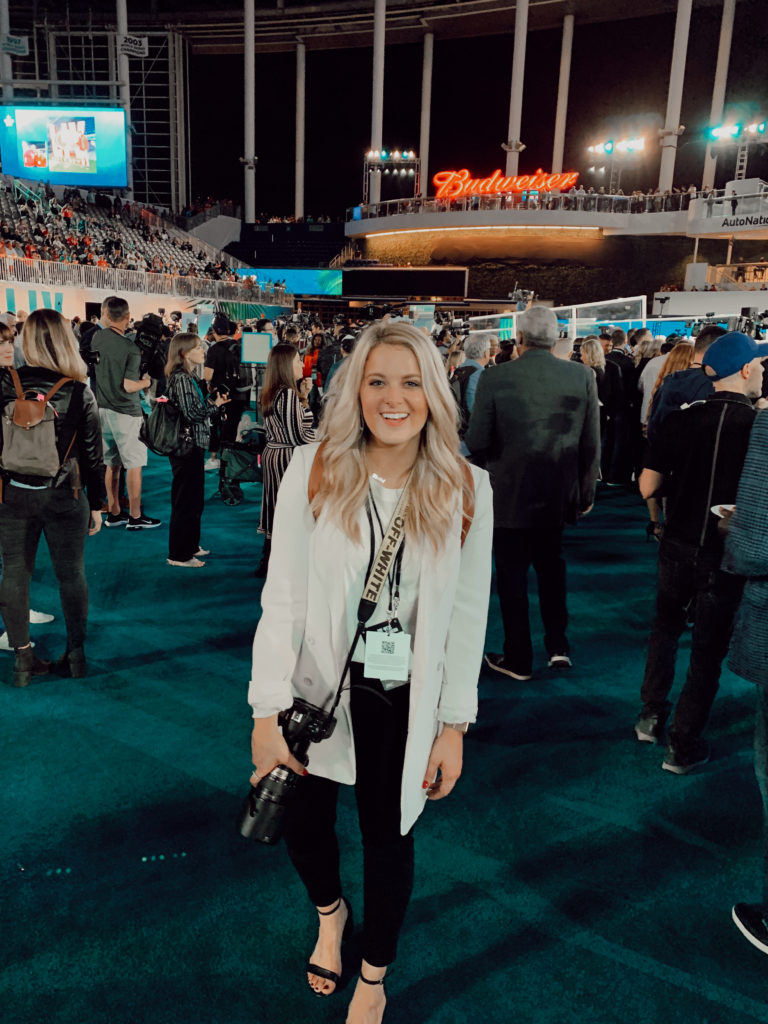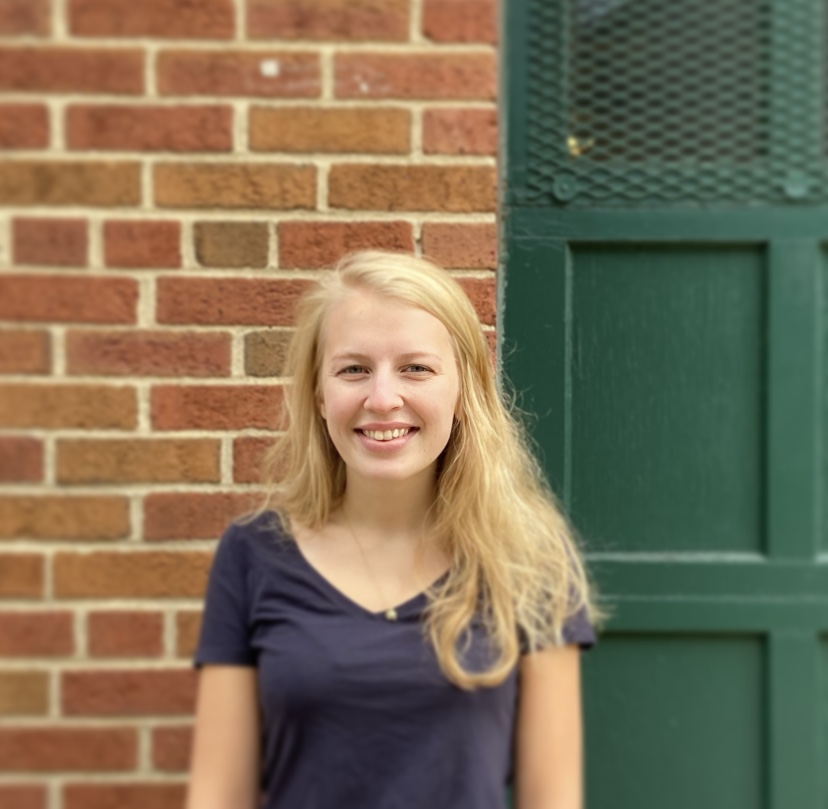This week, we’re finishing our series on our graduating English Dept seniors. Today, we are featuring: Anna Scott, Keely Iacovoni, Katelyn Ornduff, and Andrea Lowing.
Anna Scott
What year do you plan to graduate? I graduate in May 2022 (hopefully).
If applicable, what are your major(s) and minor(s) aside from English? How do you see your English major impacting/influencing your other major(s)/minor(s)? Aside from English, I picked up an economics major sophomore year. Although this isn’t a typical pairing (like Econ and business would be), I think they compliment each other well. I like getting the logical side of economics and using my language and analytical skills that I have learned in English to supplement how I interact with the course material in Econ. I also am the student who secretly gets excited about writing a paper in Econ, and am usually the only one.
What is your favorite book or author? My favorite author is Donna Tartt. I think her prose is genius and her stories are uniquely creative. I first read The Secret History by her and moved on to her Pulitzer winning The Goldfinch. Currently I am reading The Little Friend.
What is your favorite book/short story/etc. that you’ve read for class at Hope? For my memoir class last semester we read When Breath Becomes Air, and it was one of the most impactful books that I have read. I do not mean to stoop to anything bordering on cheesy, but the candidness and beauty of its prose will stay with me for a long time.
What are some research interests/topics you like to study? I don’t do a lot of research for English, but I enjoyed writing a Shakespeare paper I did sophomore year. I find it fascinating to look at other critics and see where we differ in opinions on the same pieces. Sometimes I change my opinion but other times I’m sure I could convince them of their erring if I caught them in person. Usually I just have to contest their points in writing.
What are your plans for after graduation? After graduation, I am hoping to go to law school. I’m not sure where, but I am beginning to start researching places and to start the application process.
Why did you choose to study English? English wasn’t really the choice for me. I knew I wanted to do that ever since I hid on our laundry table as a kid with a binder and loose leaf paper writing run-on nonsense that I claimed was a story with a plot. The choice was if I was willing to deal with people asking me what I was going to do with it and if I knew that English majors didn’t make any money. In the end though I picked up the Econ major and no one ever said that again.
How has your English major impacted your worldview? How has it shaped you? Yes. I think my English classes, especially last semester, caught me at a good time in my life—meaning a time where I was open and really eager to learn more about really whatever. I took a literary theory class with Professor Gruenler last semester, and I think that looking at the world through literature and seeing how literature looks at the world have done more to open my eyes about the events going on in our nation right now than any other source that I have sought out for that purpose. It definitely introduced me to so much that I was just not aware of before, things that my radar didn’t even have the tools to pick up that now stand out in how I see the world.
What advice would you give to someone considering a degree in English? What I would say to someone considering a degree in English is that you should probably balance it. I think if I had taken English courses, whether it be literature or writing, all the way through, I would be exhausted, but with my Econ major I feel that I can come back to the material each semester with fresh and eager eyes.
Keely Iacovoni
What year do you plan to graduate? May 2021
If applicable, what are your major(s) and minor(s) aside from English? How do you see your English major impacting/influencing your other major(s)/minor(s)? Aside from majoring in English writing, I decided to minor in Business. I thought that majoring in English and minoring in Business was unique to my advantage. I am able to produce impactful writing within the Business world, whether I’m sharing information that needs to be told or writing creatively for that company. I like to think that Writing and Business are a good pair for one another.
What is your favorite book or author? My favorite author is Ernest Hemingway!
What is your favorite book/short story/etc. that you’ve read for class at Hope? The Nick Adams Stories – for Doc Hemenway’s class
What are some research interests/topics you like to study? I’d like to research how social media and the messages we put out on the internet affect the marketing world of Business today and how much it has changed.
What are your plans for after graduation? Right now I have no major plans! I’d like to move somewhere new and do some traveling. I’m currently a digital marketing intern for a PR firm downtown Grand Rapids, MI, called Tiicker. I love the work that I’m doing for them now and will continue to work there leading up to the Summer of 2021. With that being said, the possibilities are endless with an English degree.
Why did you choose to study English? I chose to study English for several reasons, not only because I love to write, but it allows for my creativity to flow onto a page. I love being able to connect to someone else through stories and words. English has allowed me to communicate in ways that I never thought of. By studying English at Hope, it has pushed me to become a better writer every day, and I’m very thankful for that.
How has your English major impacted your worldview? How has it shaped you? I feel my major has impacted me and allowed me to possess certain skill sets that make me a desirable employee in many fields. Skills like critical thinking, analytical thinking, writing skills, interpersonal skills, synthetic thinking, lateral thinking, creativity, and most importantly communication skills. If you can communicate with varying audiences effectively, you can do pretty much anything. These skills have allowed me to push my boundaries and allowed me to discover new things. Our existence is meant for more than simply working and producing in order to survive. We are born to create and to enjoy and share, this is what English has taught me.
What advice would you give to someone considering a degree in English? If you value clear communication, spend your free time reading or writing, majoring in English could be the right choice for you. All English majors should be prepared to read and write often, which if you like doing, those shouldn’t be a major problem. It is vital to practice time management skills with studying for this degree. With studying this degree you will pick up on skills like critical thinking, working on deadlines, and spelling and grammar, etc. At Hope, they offer a wide course selection that also leaves room for English majors to explore other interests.
Katelyn Ornduff
What year do you plan to graduate? I am graduating in May of 2021.
If applicable, what are your major(s) and minor(s) aside from English? How do you see your English major impacting/influencing your other major(s)/minor(s)? My major is technically Secondary English Education and my minor is Psychology for Secondary Education. My English focus has definitely impacted how I think about teaching, particularly as I’ve been exposed to a variety of diverse texts that could work well in an education setting. My English major and Psych minor have what I like to think is a reciprocal relationship. They each impact how I view the other. For example, I tend to view characters or relationships in literature through a psychological lens, and I’ve been able to apply characters in literature as well as authors to some of the principles I’ve learned in my psychology classes.
What is your favorite book or author? My favorite author is Jane Austen hands down! I love all her novels, but my personal favorite is Sense and Sensibility.
What is your favorite book/short story/etc. that you’ve read for class at Hope? I was surprised by how much I loved A Moveable Feast by Ernest Hemingway.
What are some research interests/topics you like to study? I love to research anything about teaching English in a secondary school setting, particularly how we can incorporate new technologies and literacies in the field of ELA for our students. I also am passionate about British literature, particularly in the Victorian era.
What are your plans for after graduation? After graduation I plan to find a job teaching either middle or high school English!
Why did you choose to study English? Growing up, my English classes in school were always my happy place. I have always been an avid reader, and I love getting into deep conversations with people about books, especially when they ask questions that really make me think. Choosing this as my content focus for teaching was a no brainer, and now I am getting to share my passion for English with adolescents. I still love being part of a discussion, and now I get to learn new insights that my students have into texts.
How has your English major impacted your worldview? How has it shaped you? I think studying literature has made me a more compassionate person. I’ve been privileged to read texts by many authors who have very different life experiences from my own, and it has helped me better understand cultures that differ from mine. When I read about a character that I really connect to, I am invested in the story and feel as though I experience their life events and emotions alongside them. I hope that we continue to encourage the study of diverse texts at all levels of education so that every individual can identify with a protagonist at some point in their life.
What advice would you give to someone considering a degree in English? I would encourage any prospective English major to be open to trying something new. I signed up for Doc Hemenway’s Ernest Hemingway class, which is very outside of my normal interests, and absolutely loved it. I gained so much knowledge about an author I might have never tried out. Try signing up for classes that will challenge you or that will expose you to works that you normally wouldn’t pick up.
Andrea Lowing
What year do you plan to graduate? I am graduating in Spring of 2021!
If applicable, what are your major(s) and minor(s) aside from English? How do you see your English major impacting/influencing your other major(s)/minor(s)? I am a Secondary Special Education: Emotional Impairments major with an English minor, so I will be certified to teach English in the secondary level! English is a big passion of mine and I have found it extremely beneficial for my education major. Being an educator involves a lot of creativity and academia, much like English.
What is your favorite book or author? My favorite author is Edgar Allan Poe!
What is your favorite book/short story/etc. that you’ve read for class at Hope? My favorite thing I have read here at Hope has been the play by Amiri Baraka entitled Dutchman.
What are some research interests/topics you like to study? I am really interested in researching psychology and behavior studies! Along with this, I love looking into psychoanalytic theories!
Why did you choose to study English? I have always loved the study of English ever since I was young. I love reading and writing in every single way.
How has your English major impacted your worldview? How has it shaped you? My English studies have impacted my worldview in many different ways. Most noticeably it encourages me to continue questioning the norm.
What advice would you give to someone considering a degree in English? I would encourage anyone considering getting a degree in English to absolutely do it! The study of English is an incredibly important thing to have, especially in the current world we are in. It can help us strive for a better tomorrow.
Stay tuned later this week for our final volume in this series! Congrats to all of our 2021 grads!



